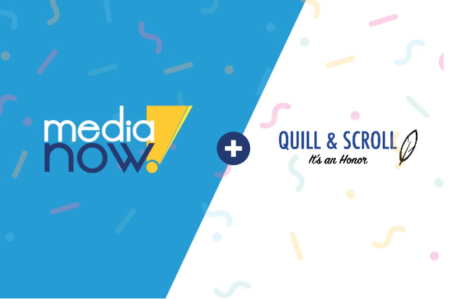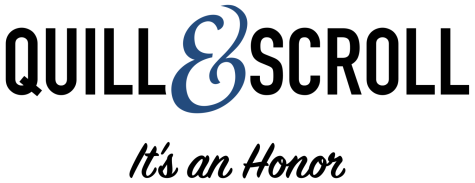THE WEEKLY SCROLL
April 18. 2022
The Lede

Photo by Blogging Guide on Unsplash
Inequality in the U.S.
Study finds Black Americans fall further behind white America in earning power, social justice and civic engagement
The National Urban League released a study last week that indicates Black Americans have fallen behind white Americans in key indices, though they have made some gains economically since the League’s first Equality Index was released 17 years ago.
The Equality Index measures earning power, education, justice, health and civic engagement. This year’s study shows that Black Americans on average enjoy only about three-fourths of what white Americans do in those areas. In addition, the average Black American family earns about $44,000 per year, while the average white family earns nearly $70,000 per year.
“These numbers change so little and so slowly. What it tells me is that this institutional disparity based on race seems to be built into American society,” National Urban League President Marc Morial told the Associated Press.
Here’s what you can do:
It’s always interesting to think deeply on the “American Dream” and its promise that anyone can rise to the highest pinnacle of their profession or in their hometowns. I mean, after all, let’s look at several of our most recent presidents —
- Jimmy Carter (1977-1981) was a peanut farmer in Georgia, attended the U.S. Naval Academy and served during World War II;
- Ronald Reagan (1981-89) was from a low-income Midwestern family and became an film and television actor;
- Bill Clinton (1993-2001) was raised by his mother and stepfather in a small town in Arkansas yet was a Rhodes Scholar;
- Barack Obama was raised by his mother and his grandparents in Hawaii before becoming president of the Harvard Law Review.
- Other recent presidents — George H. W. Bush, George W. Bush and Donald Trump — were born into wealthy families.
So there is some truth behind the “American Dream” story.
But generally, the United States is not among the top-ranked country in social mobility, the index that measures how possible it is in any country to move up in wealth and social status. In the 2020 Global Social Mobility report from the World Economic Forum, the U.S. ranked 27th of the 82 countries, so in the top-third, but not anywhere near the countries at the top: Denmark, Norway, Finland, Sweden, Iceland, the Netherlands, Switzerland, Belgium, Austria and Luxemborg.
The students at your school have been through a pretty difficult two years — COVID has killed 1 million Americans, a group of insurrectionists tried to overthrow the lawful functioning U.S. government, and legislatures around the country are throwing up roadblocks to voting, certain school curricula and abortion rights.
Bottom line — how optimistic or “mobile” do the students in your school feel? With high school graduation approaching, how do the seniors feel about their future prospects? Do they think they can achieve wealth, fame and status (if they’re seeking it), or are they less optimistic?
It’s An Honor

Senior Mikaila Barker and junior Amber Bacardi, The Chronicle editors-in-chief, write a follow-up to “Invisible Wounds,” a new story that will be published in the staff’s 2019 yearbook. Photo by Cara Brinkman
YEC open for entries
Looking for something to do after the yearbook deadline and before distribution? Enter the YEC!
The 2022 Yearbook Excellence Contest is open for entries. The cost for each entry in all 30 categories is $7, and schools will be divided by size — Class A for 1,000 or more students, and Class B for 999 or fewer students,
Entry deadline is Oct. 10, and here is a link to complete descriptions of those 30 categories.
Judges will award first, second and third places in each category for each class, and they’ll award honorable mentions so that between 10 and 15 percent of all entries are recognized in every category. All students named as award recipients will be eligible to apply for Quill and Scroll student scholarships in May of their senior year.
Quill and Scroll administrators will then tally points (5 for first place, 4 for second, 3 for third and 1 for HM) to determine a Blue and Gold Award winner for each class. Last year’s winners were Shawnee Mission North High School in Overland Park, Kansas (Class A) and Christ Presbyterian Academy of Nashville, Tennessee (Class B).
Here’s a complete list of last year’s winners, and here’s a slideshow that you can use to prepare for what judges may be looking for.
 A new partnership!
A new partnership!
MediaNow and Quill and Scroll work together to help student journalists and advisers
Quill and Scroll is proud to partner with Media Now to help students and advisers with the skills they need to succeed in the 21st Century newsroom through summer camp and year-round online resources.
We are excited for Media Now for many reasons. Like us, they have high standards and are well respected in the journalism community. They have similar guiding principles to our own Eight Guiding Principles. And we both want to recognize and further the cause of scholastic journalism. In addition, if you’ve ever been part of a Media Now event, you know they deliver not only on quality of instruction, but in bringing the energy and making their events fun.
While we will have more to talk about next week in our official release, we wanted Scroll readers to be the first to know about this new partnership. For now, feel free to check out what they have available for on-demand training right now and what they’ve got for in-person training this summer.
Critique forms available
News Media Evaluation is the best way to get objective feedback about your news operation
The Quill and Scroll News Media Evaluation provides news media staffs a one-of-a-kind assessment of your publication(s) with constructive comments and suggestions for improvement from qualified evaluators. Judges will provide a thorough analysis and rating to schools, and the evaluation exercise and feedback are instructive and developmental.
High schools and junior high/middle schools may enter their multimedia news operations, newspapers, news magazines and/or online news sites until June 15, 2022. Entries and ratings are returned in early September 2022. This service is open to non-member schools as well as member schools.
Here’s the web page with all the information about entering your publication.
Scholarships for Students
The deadline for Quill and Scroll scholarships is May 15
Student scholarship applications are now open, and they’re for students who are Quill and Scroll members or for students who have won awards in any number of Quill and Scroll contests. Apply for the grants — which can pay up to $1,500 for your first year in college — before May 15.
What’s Viral?

Photo by Tingey Injury Law Firm on Unsplash
Depp sues former wife for libel
‘Pirates of the Caribbean’ and ‘Scissorhands’ star says wife’s column identified him as a perpetrator
Actor Johnny Depp’s libel trial against his ex-wife, Amber Heard, started this week, and will continue for about a month with the “Edward Scissorhands” star trying to prove that Heard repeated untrue allegations made against Depp when she wrote a column for The Washington Post in 2018.
Heard, who has starred in several movies, including “Aquaman” and “Justice League,” wrote the column in an effort to provide support for women who come out publicly with their stories of being victims of assault and sexual abuse.
Deep is seeking $50 million in damages.
Here’s what you can do:
It’s never too early or late in the semester to discuss the ground rules for libel in your country. In the U.S., the burden of proof is on the accuser — Depp in this case must prove not only that Heard’s column contained falsehoods, but that those lies were deliberate because of Depp’s status as a public figure. Further, Heard didn’t name Depp in the column, so Depp must prove that readers could easily figure out that Heard was referring to Depp in her claims.
That’s a pretty tall hurdle to jump.
In reporting your own stories about sexual abuse, it is important to remember that if you get anything untrue or claim that a person has committed a crime, you are opening yourself up to litigation. Here are 11 tips on avoiding libel in your reporting. Be aware, though, that abusers are taking their victims to court to silence the survivors.
Just A Thought
Membership is a privilege
Some teachers go beyond the basics in determining Q&S eligibility
Two of the three Quill and Scroll student membership criteria are generally pretty straightforward and uncomplicated — earn a 3.0 grade point average (cumulative or for the year of induction), and be a second-semester sophomore or older. The third criterion isn’t so obvious — “superior work in journalism” at your school or for an outside media company.
That part about an outside media company was added to our bylaws just a couple of years ago, allowing for students who don’t have student media at their school to earn the honor by contributing to a local news outlet, to national news outlets (as our students in Pakistan do) or to student-driven social media campaigns (as our students at Class Intercom do).
Yet many advisers or Quill and Scroll sponsors ask if there’s some kind of outline that can create a more exclusive path to Q&S membership. Make no mistake, Q&S’s board and its past executive directors are happy with the more inclusive criteria. And at least one adviser has let me know that the criteria for membership should not include overall academic performance, only journalistic performance. She orders non-member cords for her seniors to wear at graduation.
I’ve written before about how I might devise a more detailed set of criteria based on Quill and Scroll’s eight guiding principles — click here and scroll to the bottom. And below is one outline from a school that requires more than the basic membership criteria.
If you have a method of determining Q&S membership for your chapter, and you’re willing to share with others, email me at [email protected] and I’ll share it in a future Scroll.
SAMPLE Quill and Scroll Membership Application Scoring Guide
- Students should earn a minimum of 13 points for membership.
- Students should earn a minimum of 20 points for an honor cord.
Dear Adviser: The outline below is meant for you only as an example of how you can, if you choose, determine membership in Quill and Scroll beyond our basic requirements: sophomore, junior or senior standing; superior work in journalism at your school or for a professional news outlet; and a 3.0 or better grade point average.
Academic Achievement (GPA at time of nomination)
- Between 3.5 and 4.0 = 5 points
- Between 3.3 and 3.39 = 4 points
- Between 3.2 and 3.29 = 3 points
- Between 3.1 and 3.19 = 2 points
- Between 3.0 and 3.09 = 1 point
Years on Staff
- Four years = 4 points
- Three years = 3 points
- Two years = 2 points
- One year = 1 point
Journalism Leadership (Add up all that apply)
- Editor-in-Chief = 5 points
- Section/Managing Editor = 4 points
- Other Leadership Position = 3 points
- Staff (Writer/Photographer/Copy Editor/Cartoonist/Etc.) = 2 points
Adviser Assessment (Add up only those that apply)
- Student completes all deadlines = 1 point
- Student exhibits positive characteristics consistent with Quill and Scroll ideals = 1 point
- Student’s work exhibits accuracy, depth and clarity = 1-3 points
- Student manages time effectively = 1 point
- Student is a positive role model = 1 point
Journalism Awards
Student has been recognized by outside entities for journalistic excellence = 0-3 points
- Placed in at least one local journalism competition = 1 point
- Placed in at least one state journalism competition = 1 point
- Placed in at least one national/international journalism competition = 1 point
